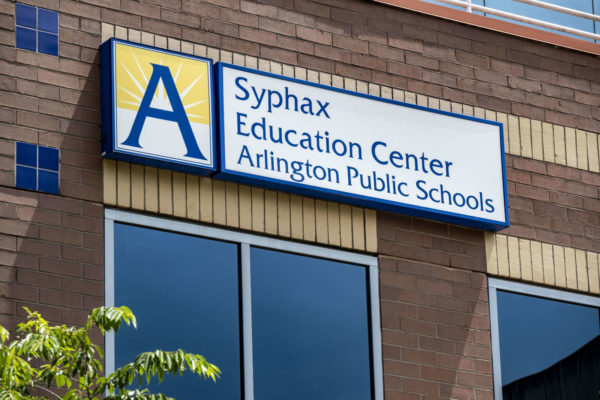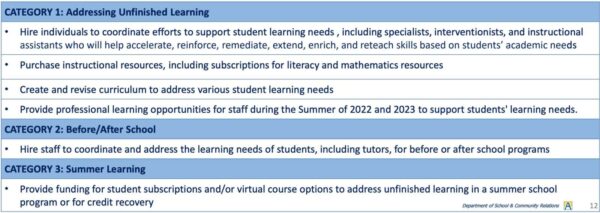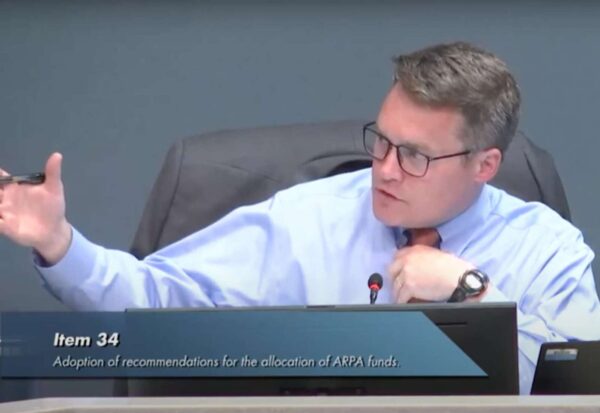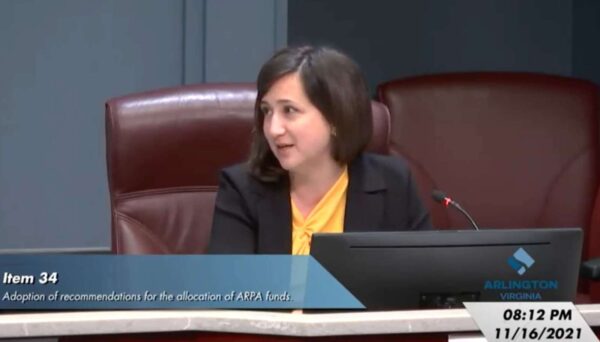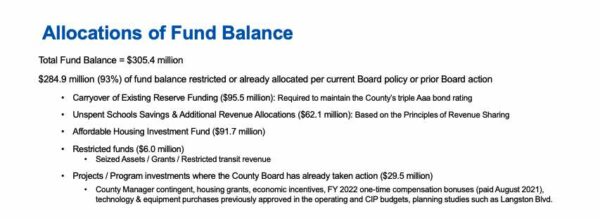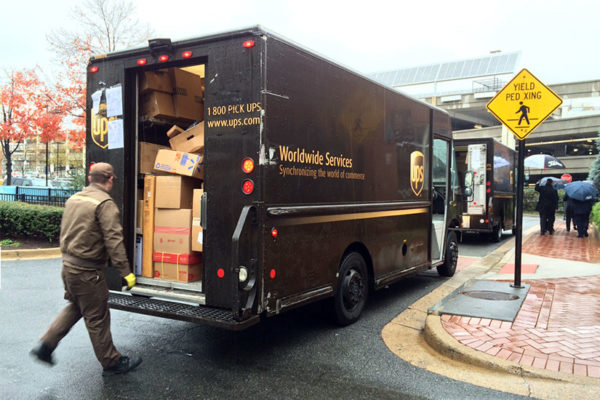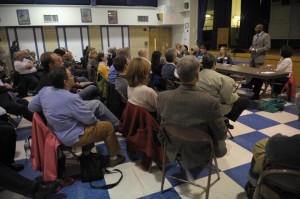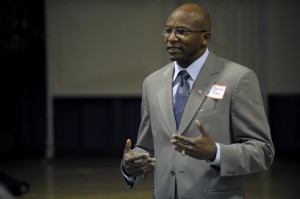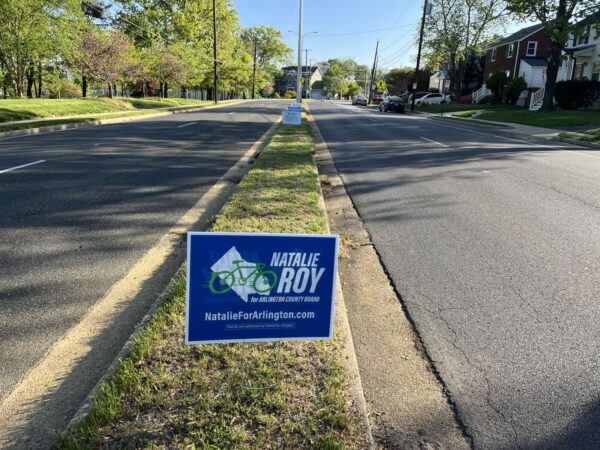
(Updated at 12:10 p.m.) Two candidates have emerged as top fundraisers ahead of this year’s Democratic primary: Natalie Roy for Arlington County Board and Josh Katcher for Commonwealth’s Attorney.
That’s according to newly-filed quarterly campaign financial reports.
The six candidates for County Board, two for Commonwealth’s Attorney and three for Sheriff will run in a primary on June 20 to determine the local party’s nominees headed to the general election. The Arlington County Democratic Committee will hold a caucus in May to endorse a School Board candidate.
In statements, Roy and Katcher said the numbers show their message resonates with people who do not feel heard or are concerned with the direction Arlington is headed — whether on housing and community engagement or on prosecutorial reforms.
Roy, a realtor noted for getting around on bicycle, kicked off her campaign by expressing misgivings with the zoning ordinance changes known as Missing Middle, which passed in March. She instead suggested other solutions — such as turning the vacant, condemned Key Bridge Marriott into housing and county amenities.
She comes in first at $51,237, followed by former Arlington NAACP branch president Julius “JD” Spain, $48,032, and businessman Tony Weaver, $46,087.
While Roy has the most donations over $100, her campaign highlighted that 80% of donors were Arlington voters and 80% donated less than $250.
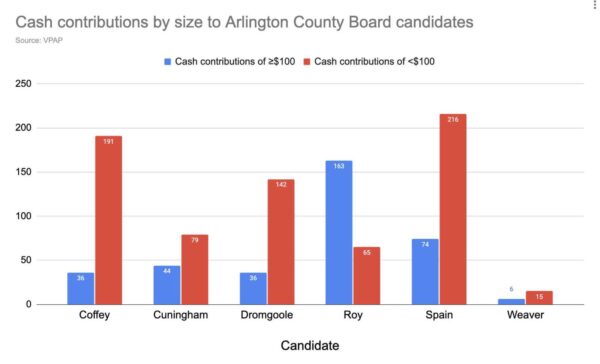
“This shows both strong grassroots and widespread community support, a sign that Natalie’s message has been resonating with Arlington voters who feel like their voice has not been heard in recent years,” per a statement she released on Tuesday.
“From hosting small meet & greets in their living rooms, to knocking doors, to donating, their strong and steady support has made it possible for me to do the best part of a campaign — meeting with and hearing from Arlingtonians across the county,” Roy continued.
With $105,526 raised and more than $90,000 spent, Katcher — who worked as a prosecutor under Theo Stamos and his now-opponent, incumbent Parisa Dehghani-Tafti — outraised and outspent his former boss.
“Ours is the people’s campaign, and once again the Arlington and Falls Church City communities have stepped up and proven that,” he said in a statement. “Since I kicked off my campaign in November, we have surpassed our fundraising targets — twice. Thank you to all the supporters who have helped make this possible.”
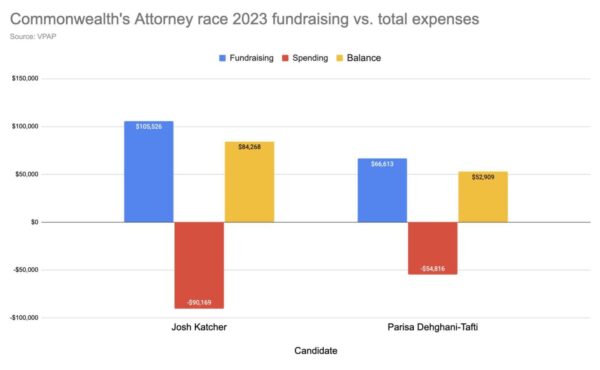
Katcher’s campaign said all his support is derived from individuals. Per the nonprofit Virginia Public Access Project, which compiles campaign reports, some 400 people have donated to his campaign. Dehghani-Tafti has received donations through some 150 individual contributions in addition to three PACs.
The largest of these is an in-kind donation of $8,000 from Justice and Public Safety PAC, a PAC funded by George Soros. The billionaire philanthropist donated millions to the PAC, supporting dozens of progressive prosecutor candidates in the U.S., including several hundred thousand dollars in cash and services to Dehghani-Tafti’s successful 2019 campaign.


